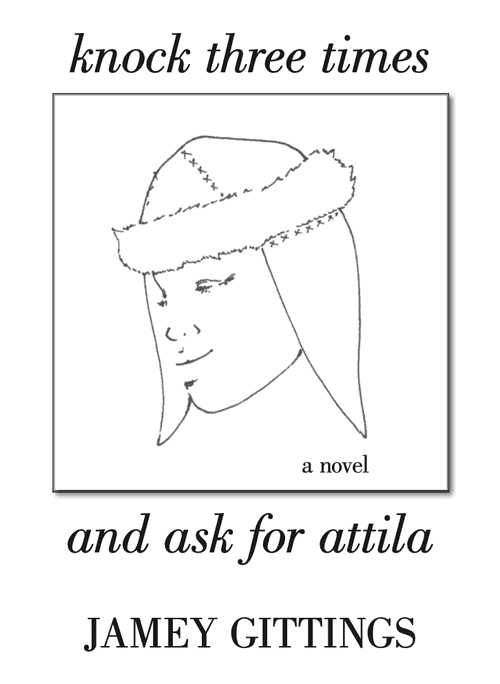The Playgroup
The day I’ve just reported is an account of the first day of my participation in the study and my introduction to Dr. Malone. To continue with my second day: With breakfast over, I complete the ritual of organizing and packing my backpack, important, since it determines in whose house I will be residing for the next number of days. I have lived in two houses since shortly after my seventh birthday.
I am waiting by the front door to respond to the honk that signals my mother’s arrival and prevents the need for my parents to interact. My mother is a government appointee to the U.S. Department of Education in the area of special education, but I do not know this at the time. I greet her this morning with: “Washington Post means Washington newspaper. Washington is the place where we live, even though our house is in Georgetown. Post means mail, too.” She looked at me for a moment with her mouth open, and that resolves into a broad smile. She giggles slightly and gives me a hug.
“Today you will be starting your playgroup,” my mother says, using her word for behavioral clinic, “after your shot.” I liked that she used a word with which I am familiar.
The injection follows the same pattern as the previous one, with Dr. Malone’s spirited account of bazookas and Bad Mr. 21, and me grunting perfunctory responses to his prattle. This time, however, instead of returning to the car and my school, we go down the elevator to the basement where we pass through glass double doors into what appears to be a large classroom with a lot of different areas: places with groups of tables, some with little cubicles with spaces for only two people facing each other, areas with carpet and big pillows surrounded by low cases filled with books and games, areas with circles of chairs of varied numbers. Colorful posters adorn the walls—kittens, puppies, and smiling children playing on grass. Surrounding the entire room is a band of mirrors about a meter wide and the same height above the floor. Throughout the room, dangling from the ceiling, are things I now know to be microphones. There are no windows in the room, but it is well lighted and cheery.
As usual, we’re late, or at least the last to arrive. We move to a circle of chairs where about fifteen children and two adults sit. Some of the children I have seen before at the doctor’s office, but the adults are new to me. My mother walks me over to a chair, pats me on my shoulder, then leaves. “Welcome, Mason,” says the woman with brown hair. The adults are both women.
“Hi,” I say, in an upgrade from “huh.”
“We are here today to get to know each other,” says the blonde-haired woman. “We are all taking part in an important cooperation,” her word for study, “that will be a good thing for everyone here. Before we get started on our structured activities, we want to learn all of our names. My name is Sally, and we’ll go around the circle this way.” She looks to the child to her right. “What is your name, dear?”
The girl mumbles something that sounds like “Uh”.
“Very good, Mary,” the blonde woman announces. As we move through the circle, each child ventures an approximation of their name. A wide range of fidelity is exhibited within the group. Some, however, remain silent, and Sally announces their name to the group and moves on. When the circle comes around to me, “Mashon,” I say with a realization that this isn’t exactly my name but is close enough for this group. I’m near the end. The brown-haired woman who is last says her name is Theresa.
Theresa directs us to where we need to be next, and the two women assist us in getting to our predetermined stations. At each station, or center, as they call them, is at least one new adult who looks younger than Sally and Theresa. I’m directed to a cubicle designed for two people to work in privacy, but two chairs are set on one side of the table facing Ted, the adult. I sit next to a girl named Holly. She is about my age, and has curly really yellow hair. I wonder if her parents keep her hair long to hide an odd-shaped head like mine. I look, and her head appears fine to me. Holly was number one on the name fluency exercise, enunciating perfectly and with a confidence not displayed by any of the rest of us.
Our teacher, Ted, has a book with a list of words and asks us to read them. I know very few. Holly, however, knows almost all of them. Ted writes furiously on a clipboard. The cubicle is actually a bit too small for two people on one side, but it feels nice to be this close to Holly. Occasionally, we bump our arms and shoulders into each other, and I even engineer some of these. The session is coming to an end, and I don’t want Holly to think I’m stupid, so I say to Ted: “I know how to write Washington Post.”
“You do?” says Ted, who hands me the clipboard and a pencil.
I can now read Washington Post, but I’ve never written it. I’m worried that I’ve overreached, but I look at Holly, take the pencil and write out a scrawly “Washington Post.”
“Great,” says Ted, and Holly, who seems impressed, smiles at me and giggles.
My mother is waiting for me at the mouth of the glass double doors. “How did it go?” she asks.
“Great,” I bubble. It was the first time I had ever used the word, and I wonder where it came from.
